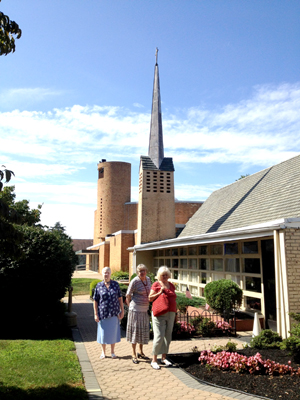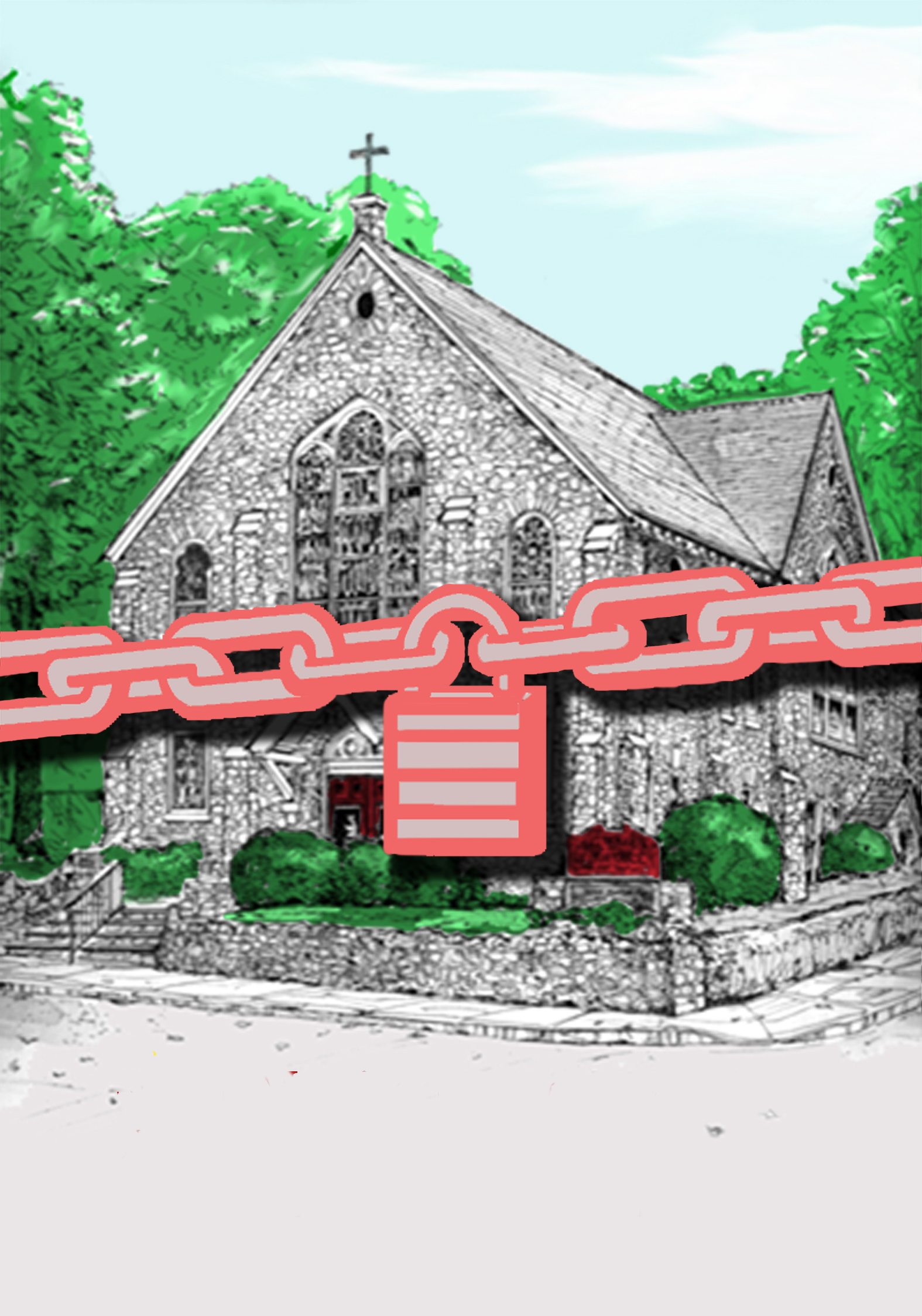It’s the first Sunday of the month, the week Redeemer members pass our locked church to worship together in a community theater and gather across the street in a neighborhood bar afterwards for fellowship. The bar even added us to their calendar. (God is doing something new!)
We had many things to celebrate and give thanks for today. Two of our members were awarded good jobs and one is starting a business. We were particularly grateful that one of the retired pastors who worships with us regularly was back with us after a four-month rehabilitation after surgery.
We enjoy having our own worship—singing the hymns we choose, praying our own prayers, enjoying our own fellowship. We also enjoy our Ambassador visits on the other Sundays of the month. But there is nothing like being at home.
We know that the only reason to lock our people out our church was to destroy our community. Lesson to church hierarchies: Find another way!
We were reminded in today’s sermon of an ongoing theme of our Australian pastor — that church is not about what we “get out of it.” It is about God and His relationship with us and our response to His love.
There isn’t a church in East Falls that isn’t challenged. Some of the challenges come from the religious apathy of the community. We can’t blame them to some extent. It’s rather dangerous to be a Christian (or at least a Lutheran) in East Falls.
The greatest challenge is from the Church itself, who values property above community. It is too expensive to operate religious schools. Send the kids elsewhere. Rent the buildings.
The people who invested their time and offerings in Redeemer and St. Bridget’s (and perhaps a few other church communities before them) have had their gifts squandered by outside interests. Fallsers gave to contribute to their community. Their gifts were confiscated or devalued by people who thought they had better uses for our resources but haven’t a clue how to serve East Falls.
If only the courts could hand out consciences as easily as property!
There are reports that the Southeastern Pennsylvania Synod of the Evangelical Lutheran Church in America is negotiating the use of Redeemer Church with community leaders. SEPA spent no time considering the use of Redeemer Church with the people who built the church — the Lutherans of East Falls. They continue their attacks on our members in the courts. That should give the people of East Falls some idea of the character of the people with whom they are negotiating. East Falls beware!
At the heart of SEPA’s problems in East Falls is loss of mission — or to use church-speak — the loss of “missional focus.”
If SEPA cares, they should note: Redeemer is still a worshiping community.
Talk to us! You have a better chance of serving East Falls with the Lutherans of East Falls than without us.
As for the excommunicated members of Redeemer, we will serve the Lord.





